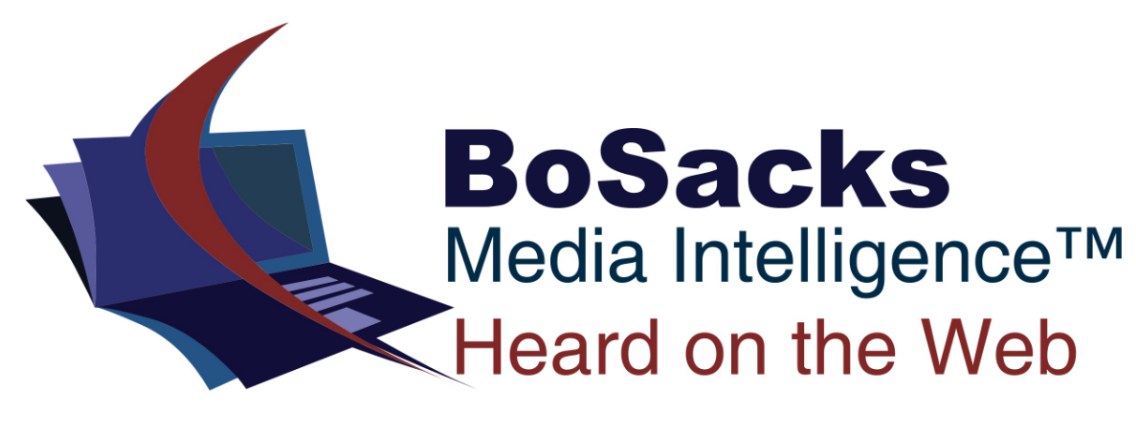BoSacks Speaks Out: The Dark side of AI for the Magazine Industry?
By BoSacks
Sat, Jan 21, 2023

I make no bones about it. I am a happy graduate of Star Fleet’s Academy for Futurists having watched every Star Trek show in all its iterations, many multiple times. I have seen the future.
Is there anything that Star Trek prophesied that hasn’t come to pass? Communicators (Cell Phones), talking computers that answer questions, (https://chat.openai.com/chat with https://www.youtube.com/watch?v=ZehhrrQGmt4)
Phasers (Lasers) that have military implications. There are also discussions in scientific circles that warp drive is an actual thing and not might happen but will happen.
Being a self-appointed futurist for the magazine industry, it has been easy for a graduate of Star Fleet’s Academy for Futurists to appraise new technologies. In each stage of my career, I was ahead of the curve when it came to using to good effect new technologies. I was one of the first to move from hot lead (Gutenberg) to computerized typesetting.
I was an early adapter to using PDFs for plate making. I was a big and early proponent of Computer-To-Plate when many of my peers felt film still had a bright future and was a better vehicle than computers. You should have heard the passionate discussions in the Publisher’s Production Forum in NYC in the 1990s about the technological upheaval in the magazine business. I miss those discussions.
I’m not bragging here, or I don’t mean to. I was one of the first in the industry in the late 1980s to early 1990s to demonstrate with this newsletter what one man can do to get a global readership. I was intentionally revealing the future of digital information distribution, which the senior management just didn’t get, nor did I think they wanted to get it. Everything was cozy, and the magazine industry was booming. That was then, and this is now.
I bring all this up to explain my fascination and focus with artificial intelligence (AI) and its positive implications to the magazine publishing industry. The effect will be huge and will be an asset to everything we do.
Efficient shipping, quality printing, precise supply chain management, and last but not least editorial.
There are several potential positive attributes of AI for magazine publishing. Some of them are:
1. Increased Efficiency: AI-powered tools can automate repetitive tasks such as fact-checking, copyediting, and proofreading, which can save time and increase productivity for magazine publishers.
2. Personalization: AI-powered recommendation systems can be used to personalize content for inpidual readers, which can increase engagement and retention. This could also lead to more targeted advertising and more effective monetization strategies.
3. Data Analysis: AI can help publishers analyze large amounts of data and gain insights into readership trends and preferences, which can be used to inform content creation and distribution strategies.
4. Automated Content Generation: AI-powered tools can be used to generate new content, such as news articles, summaries, and summaries of long-form content, which can help publishers keep up with the fast-paced nature of the digital news cycle.
5. Predictive Analytics: AI-powered predictive analytics can be used to forecast future readership and revenue trends, which can help publishers make strategic decisions about content creation, distribution, and monetization.
6. Cost savings: The use of AI can help reduce costs by automating repetitive tasks and helping improve efficiency, which can help publishers save on costs of hiring human resources.
7. Improved User Experience: AI-powered chatbots can be used to interact with readers and help them find the information they need, which can improve the overall user experience and increase engagement with the magazine's content.
The implications are wide but not without drama, angst, and potential abuse.
As a devoted optimist I need to point out that there are several potential negative impacts that AI could have on the publishing industry.
One is that AI-generated content could replace human writers and editors, leading to job losses and a decrease in the persity of voices in the industry.
Another is that AI-powered tools could be used to automate the editing and proofreading process, which could lead to a decrease in the quality of content, as AI-powered tools may not be able to detect and correct errors in the same way that human editors can. Additionally, AI-powered recommendation systems could lead to a homogenization of content, as algorithms may prioritize popular, profitable content over more niche or experimental content. Finally, the use of AI in the publishing industry could also lead to issues around plagiarism and copyright infringement.
Is using AI-generated text a copyright infringement of some sort?
For example, AI-generated content that closely mimics existing works could be flagged as plagiarism. And AI-generated content that uses copyrighted material without permission could be considered copyright infringement. These issues could lead to legal challenges and financial losses for publishers, authors, and other stakeholders in the industry.
Additionally, AI-powered tools may not be able to provide the same level of feedback and guidance as human editors, which could negatively impact the development of new writers. Not to mention the entry-level jobs we expect to be replaced by AI. Who will mentor the next generation of publishing professionals if their entry-level jobs are eliminated? AI could also limit the persity of voices and perspectives in the publishing industry and could also make it more difficult for new and emerging authors to gain visibility and readership.
There is a lot of good that could come from AI, but there are also the negative aspects. What Is your opinion? Which outweighs the other?
Mark the words of a graduate of Star Fleet’s Academy for Futurists, this all bigger than you think and will definitely affect your career one way or another for a very long time.
